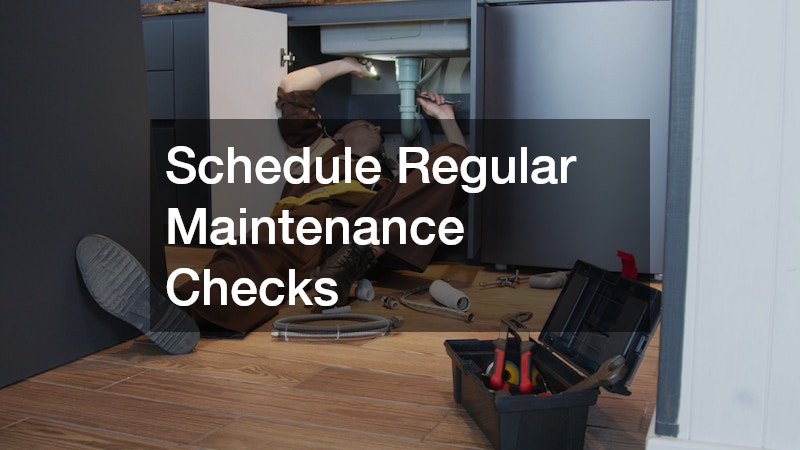Finding a trustworthy local plumber is crucial for maintaining the functionality and safety of your home’s plumbing system. In this guide, we’ll walk you through the steps of finding a reliable plumber, addressing common concerns, and highlighting key considerations in making your choice. Whether it’s an emergency repair or regular maintenance, having a reliable plumber can save you both time and stress.
Verify Licensing and Certifications
Ensure the plumber is licensed by the state or local authority and holds necessary certifications relevant to plumbing services. A licensed plumber has proven expertise and adheres to local regulations and standards, ensuring peace of mind for homeowners. Licensing indicates that the plumber has undergone required training and has passed assessments to provide quality service.
Certifications, especially from recognized industry associations, further ensure that a plumber stays updated with the latest techniques and safety procedures. Plumbers need to regularly renew their licenses and certifications, which often involves continuing education. This commitment to education reflects a dedication to quality service, making licensing and certification vital aspects to consider.
Additionally, checking for licensing online is a straightforward process, often available on state or local government websites. You can also request the plumber to provide copies of their credentials before hiring them. Confirming these qualifications will help you avoid unqualified contractors and ensure your plumbing system’s integrity.
Check Experience and Expertise
Consider the plumber’s years of experience and specialization in plumbing services relevant to your needs, such as residential plumbing. A plumber who has extensive experience is more likely to have dealt with a wide array of plumbing issues and challenges. This depth of knowledge equips them with problem-solving skills and the ability to provide efficient solutions.
Establish Clear Communication
Maintain open lines of communication for scheduling, project updates, and addressing concerns to build a trustworthy relationship. Clear communication helps prevent misunderstandings, ensures tasks are completed as expected, and keeps you updated on progress or potential issues. It allows both parties to express expectations and provides an opportunity for feedback throughout the service.
Schedule initial consultations or meetings to set the foundation for expectations and project timelines. Regular communication can facilitate collaborative problem-solving, ensuring that any unforeseen challenges during a project are managed proactively. A plumber who is responsive and open to communication is likely to be more committed to providing quality service and building a positive relationship.
Being proactive in communication reflects your investment in maintaining a long-term partnership. Consider establishing preferred methods and frequencies of communication, whether through phone calls, emails, or in-person meetings. Reliable communication is the cornerstone of a successful, ongoing relationship with your plumber.
Schedule Regular Maintenance Checks
Book regular maintenance appointments to proactively manage your plumbing system and prevent major issues. Regular check-ups can detect possible issues before they escalate, saving money on costly repairs. Scheduling maintenance embodies a preventative approach, extending the lifespan of your plumbing system and improving its efficiency.
Plumbers can provide valuable insights during maintenance visits, such as potential upgrades or energy-efficient plumbing solutions that may benefit your home. Discussing and implementing long-term maintenance plans showcases a mutual understanding of expectations between you and your plumber. An established maintenance schedule reflects a commitment to keeping your home safe and functional year-round.
Routine maintenance can also build familiarity and trust between you and your plumber. This rapport fosters a positive experience, where the plumber is more likely to prioritize your needs and tailor their services to your specific requirements. Adopting regular maintenance checks as part of your home care routine ensures a dependable service and a secure plumbing system.
Provide Feedback and Reviews
Share your experience and provide constructive feedback or positive reviews to help the plumber’s reputation and inform potential clients. Feedback can guide improvement in service, while positive reviews increase the plumber’s visibility and credibility within the community. This mutual benefit encourages your plumber to continue providing excellent service.
When providing feedback, focus on specific experiences, such as timeliness, quality of work, or professionalism, to offer a balanced view. Constructive criticism should aim to improve aspects where there’s room for growth, encouraging higher standards and better client satisfaction. Genuine feedback and reviews are invaluable assets for service providers striving to optimize their offerings.
Likewise, a strong relationship reflects through recommendations, which can help your plumber gain new clients based on trust and proven excellence. Consider leaving reviews on various platforms like review sites and social media to reach a broader audience. Providing feedback is a vital part of a supportive and collaborative relationship with your plumbing service.
Finding a reliable local plumber requires careful consideration of qualifications, pricing, and the potential for a long-term professional relationship. By following the steps outlined in this guide, you can ensure your home is in good hands and your plumbing needs are met efficiently and professionally. Through diligent research, transparent communication, and mutual respect, you can establish a lasting partnership that guarantees the integrity of your home’s plumbing system.
.

